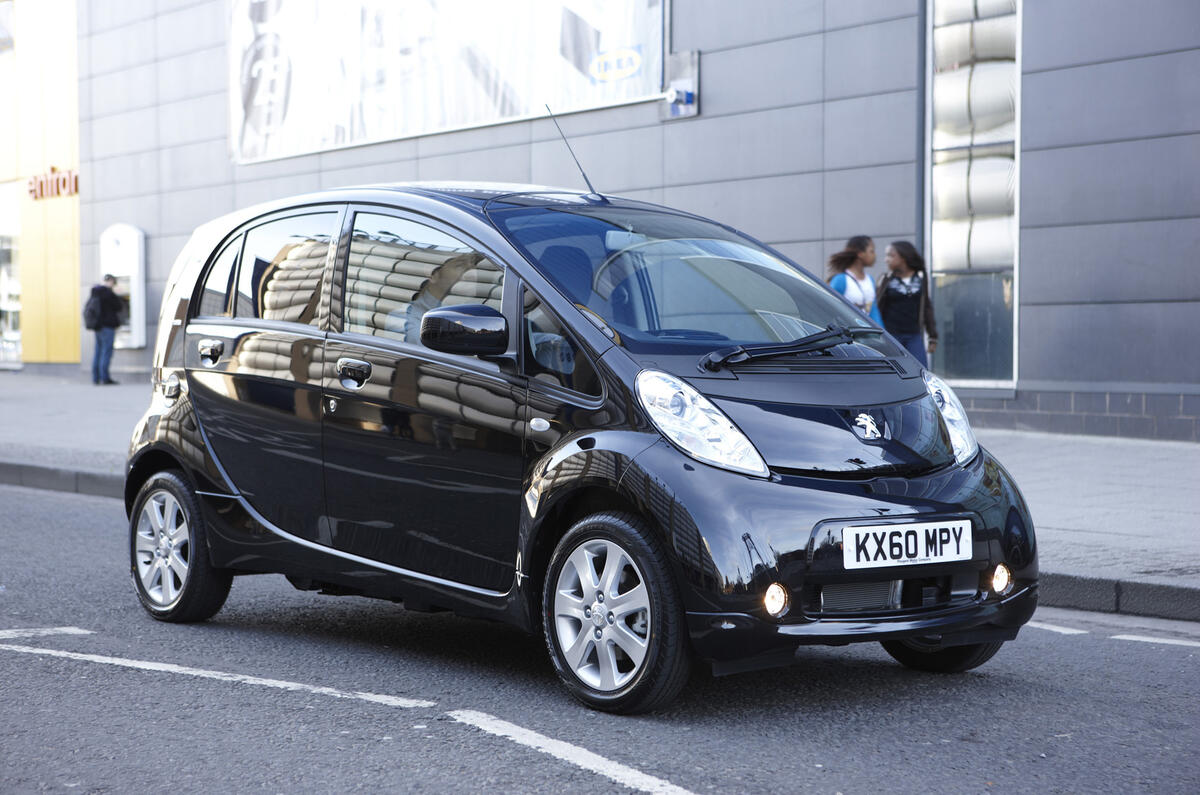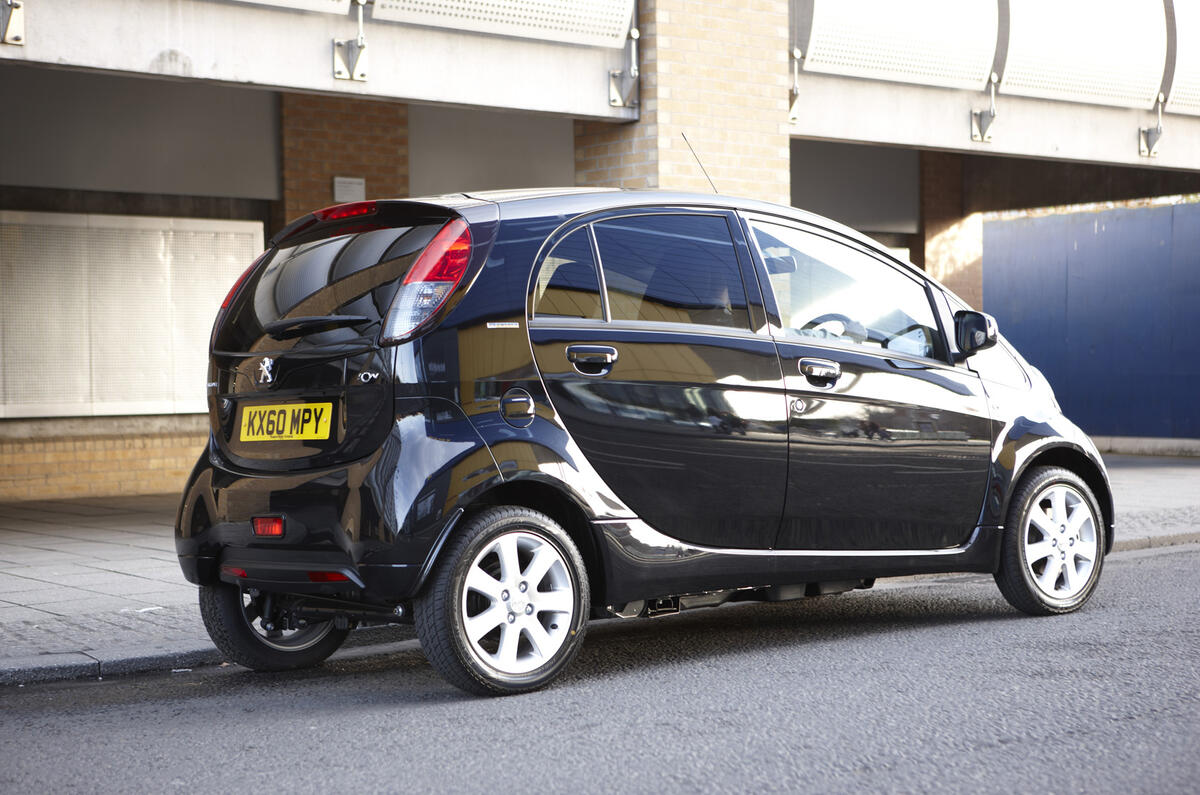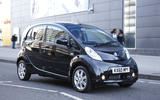Back in the mid-1990s Peugeot pioneered usable electrical power with vehicles based on the 106 and Citroën Berlingo, before that they took a conventional 205 and simply plugged an electric powertrain within it. None of the cars made headlines, but that was before the overwhelming automotive focus on alternative powertrain vehicles that we’re now faced with.
A decade and a half later, and in more timely fashion, PSA is back with the Peugeot iOn and Citroën C-Zero. It’s effectively a re-badged Mitsubishi i-MiEV, which means a 66bhp electric motor powered by lithium-ion batteries, mounted under the centre of the vehicle, that can be fully recharged in seven hours from a standard 13-amp socket, and giving the 3.5-metre long iOn city car a range of 93 miles.
While the firm is realistic about the potential of electric cars (estimating an EU market share of four to five percent by 2020) it says it hoped to sell around 50,000 iOns by 2015. Unfortunately, that was never likely to be the case, especially with the Nissan Leaf proving to be a more compelling option, while now the market is well supplied with EVs - BMW i3, Volkswagen e-Golf, Hyundai Ioniq and Renault Zoe to name a few.
The iOn offers all the essential things you look for in a city car. It’s got a spacious but compact body, which might look like a Doctor Who prop but is actually very effective at weaving through traffic thanks to its narrow proportions and good visibility. Even the interior is of an acceptable standard by comparison with its conventional rivals. The iOn is a handy 3474mm long but rather narrower than a typical European supermini. Rear-wheel drive contributes to a handy turning circle, too.




























